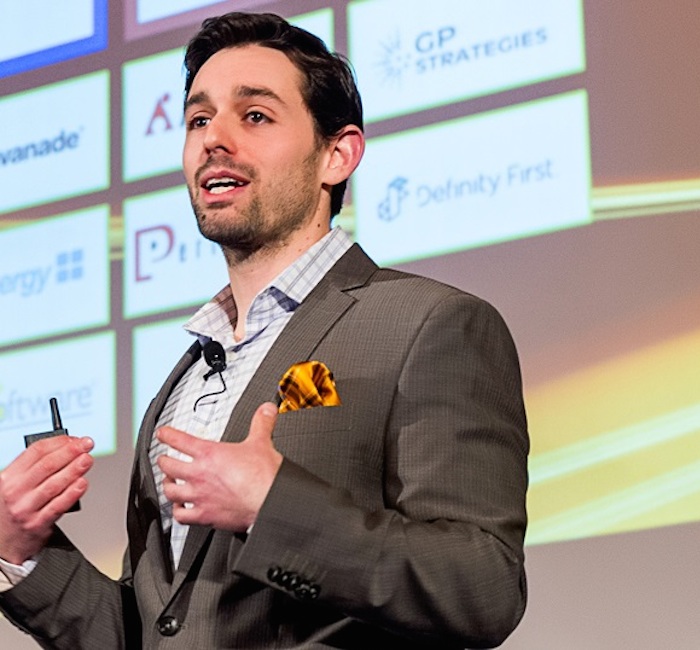Jacob is the author of the newly released, The Future of Work: Attract New Talent, Build Better Leaders, and Create a Competitive Organization (Wiley). He is also the principal and co-founder of the future of work consulting firm Chess Media Group and the FOW Community, an invite only membership community dedicated to the future of work and collaboration.
Why does the world need a work revolution? (In other words: the way we’re working isn’t working. Why not?)
Because the current way that work gets done assumes that employees are cogs, managers are slave-drivers, and that work is drudgery. These are actual synonyms you will find when looking in the dictionary. We spend more time working than doing anything else in our lives, in 2014 and beyond the mentality that “work sucks” is simply outdated and not acceptable.
How are you or your organization reinventing work in some way (big or small)?
I run a small company called Chess Media Group which is comprised of a virtual team. I’m based in the Bay Area, my business partner Connie is in Vancouver, and we have other team members based in the U.S. and some overseas. We work when we want and where we want as long as we can get things done. We also launched the FOW Community, an invite only community dedicated to the future of work and collaboration. I also have a book dedicated to the future of work coming out in a few weeks, aptly called, The Future of Work.
Why do you do what you do?
It’s fun, I’m always learning, and it’s something that I’m passionate about!
What kind of art (any kind) do you like and why? Any recommendations we should know about?
Hmm, that’s a good question. I don’t gravitate to any particular style of art (although I do think most modern art is just ridiculous). It’s one of those things where it doesn’t matter what kind of art it is as long as I like it. It can be a realistic painting, a photograph, cleverly designed text, a logo, or anything else.
What is one specific thing your company does that makes your culture unique and/or different?
I’d say launching the FOW Community is quite unique, it’s the only place that I’m aware of where companies from around the world can come together in a unique environment to explore the future of work and collaboration. The team is also completely virtual so we don’t have a corporate culture per say, more like individual personalities ☺
What is one discipline/industry totally different from your own that has inspired you? How does it impact your work?
Well I love racquetball and play it regularly. The world’s #1 player is Kane Waselenchuk, here’s a guy that taught himself how to play and has one more tournaments than anyone else in history, he’s one of the older players (if 32 is considered old) and has a 95+% winning average, unheard of in virtually any sport. I also love Chess, the #1 player in the world is Magnus Carlsen, at just 23 years of age he dethroned the world champion and has broken all records for being the world’s highest rated player ever (dead or alive!). Both of these guys have unconventional approached to their sports and I love that. The future of work is all about challenging convention.
What’s one tangible and concrete technique other organizations should use if they want to create a more human and/or meaningful place to work?
Two words mentioned above, “challenge convention.”
What is one surprising thing we should know about you?
I’m a bit of a health and fitness nut, I wear my fitbit everywhere I go and work out 5x/ a week, 3 days lifting weight and 2 days of playing racquetball and doing cardio.
What does your preferred work environment look like?
My home office where I can be next to my food!
What is “required reading” or “required viewing” for people who want to understand what makes you tick?
- The Future of Work: Attract New Talent, Build Better Leaders, and Create a Competitive Organization
- The Collaborative Organization: A Strategic Guide to Solving Your Internal Business Challenges Using Emerging Social and Collaborative Tools
- The Foundation Series by Isaac Asimov
Where in the world are you?
San Francisco Bay Area
How can people connect with you?
Twitter: https://twitter.com/jacobm
Website: http://www.thefutureorganization.com/
Linkedin: https://www.linkedin.com/in/jacobmorgan8
New book: The Future of Work: Attract New Talent, Build Better Leaders, and Create a Competitive Organization


